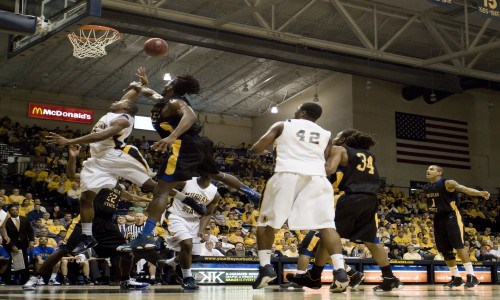New report recommends changes in collegiate basketball
On 25th April 2018, a commission looking into college basketball published a 60-page report to advice the National Collegiate Athletes Association (NCAA) on how to face the high level of corruption present in the men´s collegiate basketball. The commission was created seven months ago by the NCAA as a response to a federal corruption investigation that revealed a need of an immediate revision to the college basketball game. In fact, from the different documents obtained during the investigation, it came out that many important names and programs in the sport were involved in activities that violate the NCAA´s amateurism rules. Ten people, including some assistant coaches, have been accused of fraud and bribery.
"We believe there's a lot of work to do in that regard. That the state of the game is not very strong. We had to be bold in our recommendations," said the commission´s president Condoleezza Rice during an interview with the Associated Press.
A successful pathway for student-athletes
The proposals advanced by the commission are divided in four sections. The first one concerns the real protagonist of this game, the student-athletes and how to guarantee them a successful pathway. Indeed, conciliate the student life with the more professional sport career is not free from obstacles and complications. As a report survey by the NCAA in 2011 shows, the average of hours spent weekly at athletic activities by basketball student-athletes variates from 39 to 42. This can be a great hindrance to their chance of being full-time students.
The solution suggested in the report is to separate the collegiate track from the professional track by ending the one-and-done regime. This means that only high school students who wants to focus on their sporting career would receive an offer for the NBA draft; while those who wants to attend the college should focus on their education and be ineligible for the draft or the G League for two or three years. Therefore, high school and college players need early professional advices to have a clear overview of their actual choices.
Addressing rule violations and lack of transparency
The second section of the report focuses on the problem of the violation of NCAA rules. The idea is that the NCAA should establish independent investigative and adjudication means through which complex cases of rules´ violation can be solved. Furthermore, to be sure to create an adequate deterrent effect, the report recommends that neutral professional adjudicators with the authority to impose substantial punishments must conduct the investigations.
The third section addresses the question of non-scholastic basketball and the way through which the NCAA could make its finances more transparent. The main advice is the adoption of rigorous criteria for certifying the financial transparency of non-scholastic basketball events that its coaches attend.
The last section concerns the renewal of the NCAA’s Board of Governors with the inclusion of at least five public experts on collegiate basketball. Including outside board members is the general behavior followed by the major public companies and non-profit associations to combine objectivity and wisdom.
“The Commission makes these recommendations to support fulfillment of the NCAA’s purposes and to impose accountability on institutions and individuals undermining their achievement,” the report concludes.
The NCAA sent out a statement endorsing the recommendations from the Commission on College Basketball.
“These recommendations will ensure integrity in the game, strengthen accountability in college sports and demonstrate a commitment to the well-being of student-athletes,” NCAA President Mark Emmert said in an NCAA statement on the report.
“We are fully committed to restoring the trust and confidence in college sports.”
Even though it is still not very clear how the government body will fund some of the recommendations contained in the report, the NCAA has expressed the will to enforce some of the proposed reforms by August 2018.






